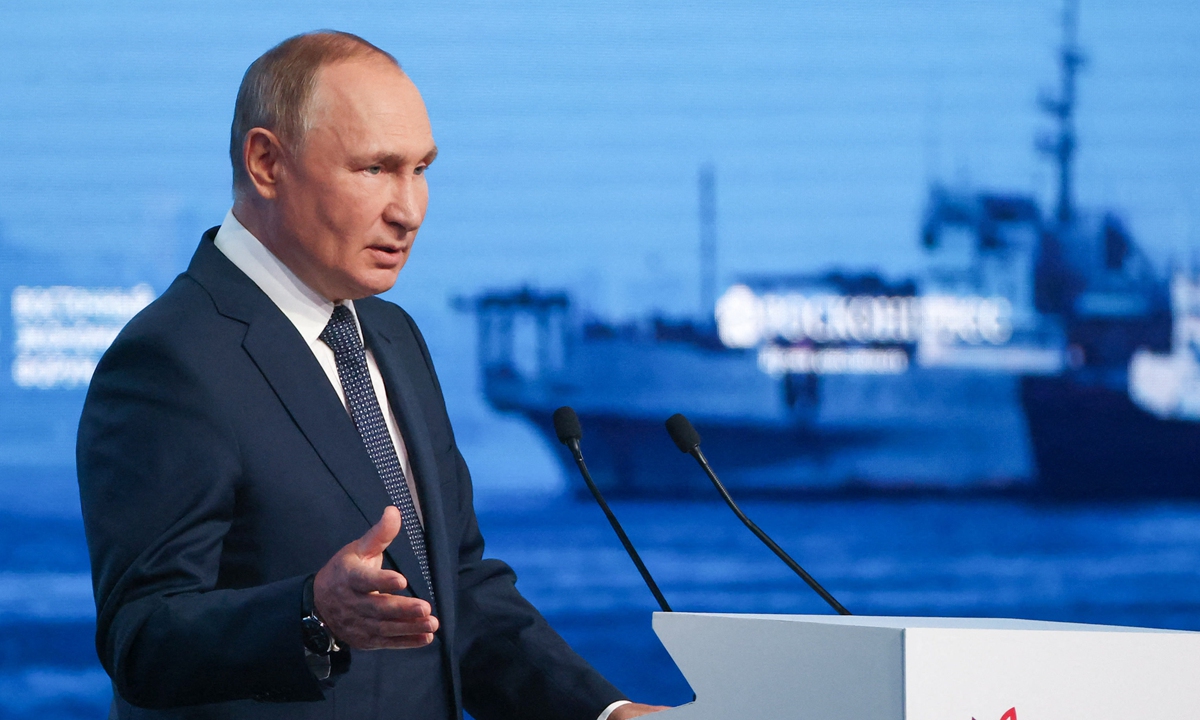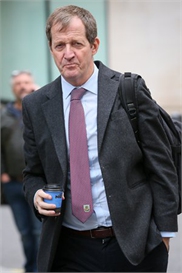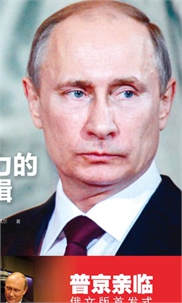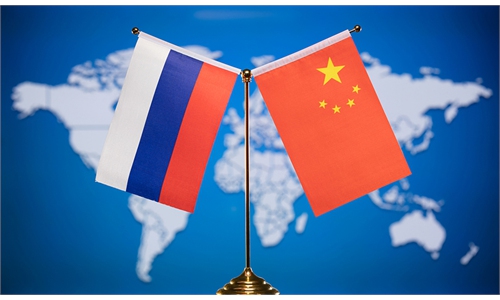
Russian President Vladimir Putin addresses the Eastern Economic Forum held in Vladivostok on September 7, 2022. Photo: AFP
Russian President Vladimir Putin announced the suspension of Russia's participation in New START, the last remaining nuclear arms control pact with the US, in his State of the Nation Address to the Federal Assembly on Tuesday, a move that experts saw as an urgent call for a return to normalcy in its ties with the US and a signal of intensified confrontation between Russia and NATO.
Explaining his move, Putin said during the State of the Nation Address that "in the conditions of today's confrontation, it [the pact] sounds like sheer nonsense," but stressed Russia was not withdrawing from it.
The Further Reduction and Limitation of Strategic Offensive Arms (New START) treaty, signed in 2010 by then US President Barack Obama and then Russian President Dmitry Medvedev, limits each country to no more than 1,550 deployed nuclear warheads and 700 deployed missiles and bombers. The agreement also includes a comprehensive on-site inspection to verify compliance.
Days before the treaty was due to expire in February 2021, Russia and the US agreed to extend it for another five years.
Chinese Foreign Ministry spokesperson Wang Wenbin commented on the matter at Wednesday's media briefing, saying that the treaty has played a key role in maintaining global strategic stability, enhancing international and regional peace and achieving the goal of a world free of nuclear weapons.
China notes the differences between Russia and the US on the issue of compliance and hopes the two sides will properly resolve their differences through constructive dialogue and consultation to ensure the smooth implementation of the treaty, Wang said.
Following Putin's announcement, the Russian Foreign Ministry said that despite the decision to suspend its participation in New START, Russia will continue to comply with its quantitative limits, and will continue to exchange notifications with the US on the launch of intercontinental ballistic missiles and submarine-launched ballistic missiles.
The ministry called on Washington "to show political will and make good-faith efforts for general de-escalation and the creation of conditions for the resumption of the full functioning of the treaty."
The significance for world peace of the New START treaty is that it has a verification mechanism that will, to a certain extent, increase arms control and prevent a nuclear arms race, enhance stability among world nuclear powers, and avoid unpredictability or miscalculation, Zhang Hong, associate research fellow at the Institute of Russian, Eastern European and Central Asian Studies of the Chinese Academy of Social Sciences, told the Global Times on Wednesday.
However, there is not a communication channel for this verification mechanism between Russia and the US, which makes the pact itself unfeasible. Under such circumstances, Russia's decision was in fact sending the US a message urging the return to normalized bilateral relations rather than endless hostilities and smearing, Zhang said.
"As Putin has stressed, it is a suspension rather than a withdrawal - that shows Russia's self-restraint as a responsible global power," the expert added.
The Russian president's declaration drew extensive concern over world nuclear safety. Western observers said the move would increase Russia-US tensions over the Ukraine conflict.
"If the US conducts tests, then we will," Putin said, adding that Russia must "understand how New START would take into account the arsenals not only of the US, but also of other NATO nuclear powers: the UK and France," TASS reported on Wednesday.
While US President Joe Biden keeps fanning the flames on the battlefield by promising another military aid package worth $500 million to Ukraine, Russia is responding to the Western military pressure in this way, observers noted. With the escalation of the conflict between Russia and NATO, we see an all-round confrontation on the battleground, not only a regular one but one with a growing risk of nuclear war, Zhang warned.
"As France, the UK and other European countries lose their diplomatic independence and joining the US, the security mutual trust between Russia and Europe is also showing a widening crack," he noted.



